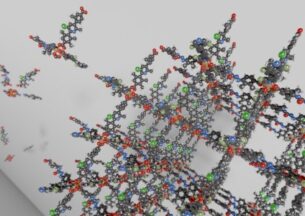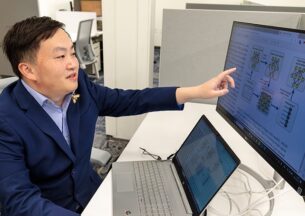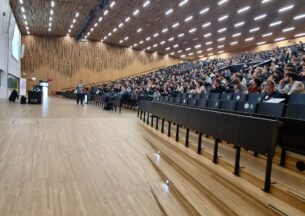Ali Javadi-Abhari (IBM) - Scaling Quantum Computation via Software/Hardware Co-design
Scaling Quantum Computation via Software/Hardware Co-design
Quantum computing is based on the insight that certain computationally hard problems have a structure that maps naturally to the quantum mechanical behavior of particles in nature. By building and controlling “qubits”, one can manipulate highly entangled states to arrive at solutions for certain problems with exponential speedup over best-known classical alternatives. Qubits are notoriously hard to control and isolate, however, which leads to an assortment of errors that can quickly corrupt computation.
In this talk I will show evidence that a hardware/software co-design approach can push the boundary of feasible quantum computation. In other words, by gaining insight into the types of noise that arise in hardware (using characterization or other means), and also the structure of the problem, we can tailor a software stack and architecture that greatly relieve the hardware from stringent accuracy requirements. I will illustrate this through examples from quantum phase estimation, quantum volume, and quantum chemistry.
I will conclude with some remarks about language support for enabling better programmability and optimization on near-term quantum computers. I will introduce our recent work on the OpenQASM dialect that acts as a multi-level circuit representation and IR. I will show examples of the types of programs that can be written using the new version of this language, including how gradual levels of hardware specificity can be introduced into the code to capture design intent but keep code portable. I will also contemplate the usefulness of IRs beyond QASM-style circuits.
Host: Fred Chong

Ali Javadi-Abhari
Ali Javadi-Abhari is a Research Staff Member and Manager of the Quantum Compiler group at IBM. His research interests are in compiler and architecture issues in quantum computing, especially as they pertain to extracting the most performance from noisy hardware. He was one of the principal architects of the Scaffold programming language and the Qiskit quantum information science package. He leads the compilation sub-thrust of the Co-design Center for Quantum Advantage, as part of the National Quantum Initiative. He received his PhD in computer science from Princeton in 2017.













